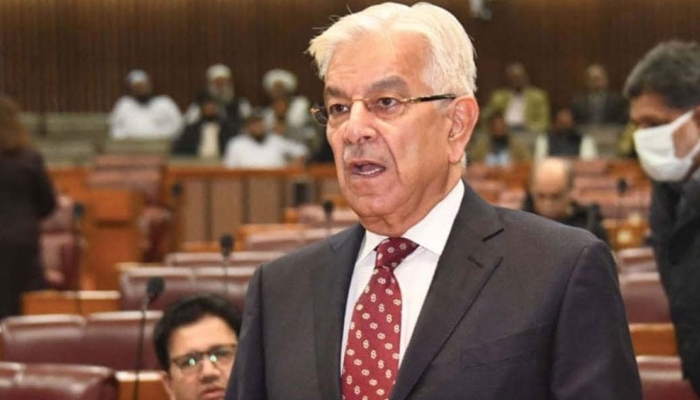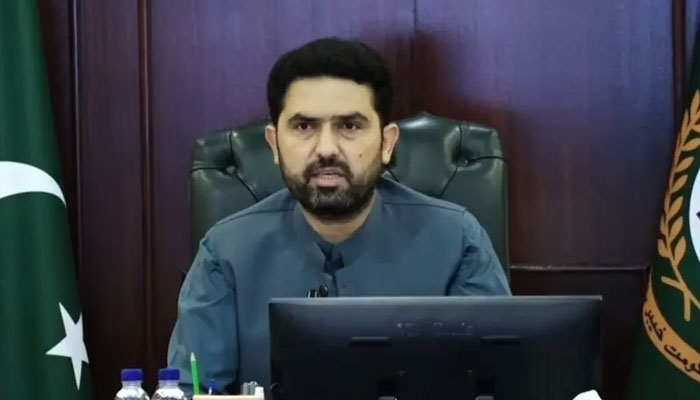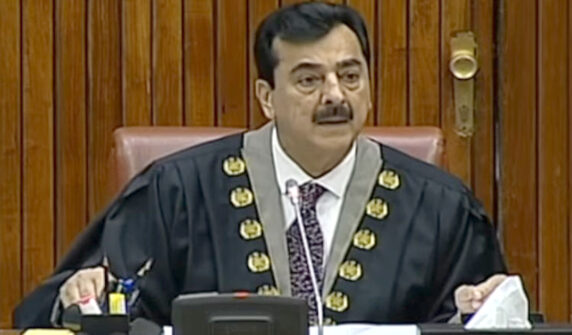POLITICS & POLICY MAKING

Defence Minister Khawaja Asif on Friday launched a strong critique of Supreme Court Justices Mansoor Ali Shah and Athar Minallah for resigning from their posts following the passage of the 27th Constitutional Amendment. Speaking in the National Assembly, Asif accused the judges of selective accountability, saying their “consciences only awakened after their monopoly was curtailed.”
The resignations came just hours after President Asif Ali Zardari signed the controversial amendment into law on Thursday. The 27th Amendment introduces sweeping reforms, including the establishment of a Federal Constitutional Court (FCC), revised judicial structures, and enhanced executive oversight — changes critics argue dilute judicial independence.
‘Selective Amnesia’ and Judicial Past
Addressing the lower house amid chants of “Imran Khan, Imran Khan” from the opposition benches, Asif accused both judges of overlooking their roles during past political decisions, especially those involving former prime minister Nawaz Sharif.
“Four to five years ago — in fact, eight to 10 years ago — when the process to remove Nawaz Sharif started, I want to remind you of the role our judges played,” Asif said. He pointed to the Panama Papers proceedings overseen by then-Chief Justice Saqib Nisar, during which multiple benches declared Sharif ineligible for office and later ruled his disqualification to be lifelong.
Asif highlighted that the same judges repeatedly presided over politically sensitive cases, accusing them of contributing to what he labelled “kangaroo courts” and a targeted agenda against Nawaz Sharif.
“When Nawaz was being victimised and pushed out of politics forever, no one felt any shame,” he said, adding that today's critics of the amendment remained silent during those years.
Poetic Farewell and Judicial Protests
Asif also mocked Justice Mansoor Ali Shah for including a poem in his resignation letter, saying judges who once served silently were now “writing poetry and issuing political statements.”
He alleged that their sudden moral awakening was driven by the fact that the 27th Amendment reduced what he described as their “monopoly” within the Supreme Court.
The defence minister argued that the amendment upholds constitutional supremacy and ensures judicial checks and balances long needed in the system.
Criticism of Opposition
Turning his attention to the opposition benches, Asif said their chants of “Khan nahi tou Pakistan nahi” proved their loyalty to an individual rather than the Constitution. He further accused them of defending militants by refusing to condemn recent attacks in Wana and Islamabad.
“These people have become protectors of terrorists,” he said, criticising their silence on extremist violence.
The Judges’ Resignation Letters
In his letter, Justice Mansoor Ali Shah called the 27th Amendment “a grave assault on the Constitution” that dismantles judicial independence, subjects the judiciary to executive control, and “pushes the country back by decades.” He warned that the amendment leaves “deep institutional scars.”
Justice Athar Minallah, in his resignation, lamented that the Constitution he swore to uphold was “no more,” calling the amendment’s passage a complete disfigurement of Pakistan’s constitutional order.
Both judges expressed that remaining in office after such changes would violate their oath.
Senate Approval and Controversy
The amendment was passed in the Senate with 64 votes in favour and four against, after being approved with amendments in the National Assembly. The government asserts the new framework will streamline governance, introduce constitutional courts, and modernise judicial and executive processes.
At the core of the amendment is the creation of the Federal Constitutional Court (FCC), comprising judges from all provinces to exclusively hear constitutional matters — a move critics claim sidelines the Supreme Court and consolidates executive influence.
As political tensions rise, the resignations of two senior judges have intensified debate over judicial independence, constitutional authority, and the future of Pakistan’s legal structure.




